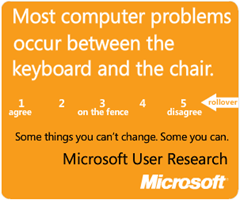I hear a lot of people everywhere complain about various Windows 10 annoyances(unauthorized updates+changes, Cortana etc), , but I want to assure you all that there are very acceptable alternatives for using your computer they way you wish.
I. Get an Apple computer. Sure, much more expensive but I must tell you, I always have bought "refurbished" from Apple that were as good as new, but much more affordable. http://www.apple.com/shop/browse/home/specialdeals/mac
Advantages:
1. Drop dead easy to use.
2. Superior graphics, photos and everything visual looking so much better
3. Stable. Apple writes hardware drivers and other software a "tailor-made" to the machine, results in smooth, snappy feel.
4. Security. Low risk for virus infection. Based on Unix.....
Disadvantages:
1. Proprietary media player(Quicktime). I personally don't care for Quicktime, there are Open Source alternatives(for example- VLC)
2. No productivity applications, other than a simple text editor, but once again, Open Source software fills the bill nicely: LibreOffice.
Here is a link for Open Source software that have versions for Apple machines: http://www.cio.com/article/2870131/the-12-best-free-and-open-source-apps-for-mac-os-x.html .
II. Install Linux on your PC.
Advantages
1.Ease of use Quite frankly, any of the popular Linux versions are just as easy to install and use, for the typical user.
2. Security by default. In Windows security measures are available, but they are left wide open, by default. By default, Linux operating systems require elevated privileges("Root", meaning "admin') in order to made significant changes, or install software.
3. Tons of useful software. For example, Linux distributions typically come with Firefox, LibreOffice, an image editor called GIMP,
4. Linux is Open Source, which means that the software has been vetted by thousands of dedicated developers all over the world, instead of just a relatively few, that are beholden to proprietary , corporate constraints.
Disadvantages
1. Only real disadvantage would be in cases where at home/in office the user is "married" to a specific productivity application that runs only in a Windows environment. One example would be if a person had used Microsoft Works as their text editor, I doubt if those Works documents could be read without Works installed.
There is a Windows emulator .called Wine, under which many Windows applications can be run in the Linux operating systems. Not all of course, but ongoing development is the cornerstone of the thriving Wine community.
I. Get an Apple computer. Sure, much more expensive but I must tell you, I always have bought "refurbished" from Apple that were as good as new, but much more affordable. http://www.apple.com/shop/browse/home/specialdeals/mac
Advantages:
1. Drop dead easy to use.
2. Superior graphics, photos and everything visual looking so much better
3. Stable. Apple writes hardware drivers and other software a "tailor-made" to the machine, results in smooth, snappy feel.
4. Security. Low risk for virus infection. Based on Unix.....
Described by InfoWorld as "an open systems solution with the Macintosh at its heart",[SUP][2][/SUP] the operating system is based on UNIX System V Release 2.2. It includes some additional features from System V Releases 3 and 4 and BSD versions 4.2 and 4.3. It is POSIX and System V Interface Definition (SVID) compliant and includes TCP/IP networking from version 2 onward. Having a Unix-compatible, POSIX-compliant operating system made it possible for Apple to bid for large contracts to supply computers to U.S. federal government institutes.[SUP][3][/SUP][SUP][4][/SUP]
Disadvantages:
1. Proprietary media player(Quicktime). I personally don't care for Quicktime, there are Open Source alternatives(for example- VLC)
2. No productivity applications, other than a simple text editor, but once again, Open Source software fills the bill nicely: LibreOffice.
Here is a link for Open Source software that have versions for Apple machines: http://www.cio.com/article/2870131/the-12-best-free-and-open-source-apps-for-mac-os-x.html .
II. Install Linux on your PC.
Advantages
1.Ease of use Quite frankly, any of the popular Linux versions are just as easy to install and use, for the typical user.
2. Security by default. In Windows security measures are available, but they are left wide open, by default. By default, Linux operating systems require elevated privileges("Root", meaning "admin') in order to made significant changes, or install software.
3. Tons of useful software. For example, Linux distributions typically come with Firefox, LibreOffice, an image editor called GIMP,
4. Linux is Open Source, which means that the software has been vetted by thousands of dedicated developers all over the world, instead of just a relatively few, that are beholden to proprietary , corporate constraints.
Disadvantages
1. Only real disadvantage would be in cases where at home/in office the user is "married" to a specific productivity application that runs only in a Windows environment. One example would be if a person had used Microsoft Works as their text editor, I doubt if those Works documents could be read without Works installed.
There is a Windows emulator .called Wine, under which many Windows applications can be run in the Linux operating systems. Not all of course, but ongoing development is the cornerstone of the thriving Wine community.
Last edited:


